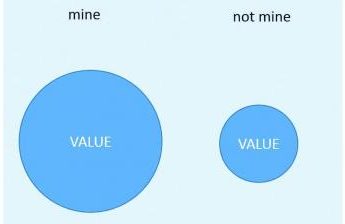The business valuation process can be broken down into four parts. 1) The engagement process 2) Research and data gathering 3) Analysis and development of the business value 4) Reporting engagement results There are several items that need to be considered at the start. What legal interest is to be valued – (e.g., 100% of the company’s common stock but partial interests can be valued too) Valuation date – the exact date the company’s value is to be calculated The valuation purpose (e.g., tax, business sale, litigation support, business planning and so on) Define the standard of value, which…
Category: Business Valuation
What Does a Tax Business Valuation Report Need?
IRS Revenue Ruling 59-60 describes the rules that define what constitues an acceptable (for IRS purposes) business valuation. Many courts also require that the valuations presented there follow these standards too. If you need a valuation that will be used to calculate tax liability or in court, the 59-60 standard is the way to go. The numbers 59-60 refer to the year the rule was first used (1959) and the number of the ruling in that year (60). Internal Revenue Code (IRC) 59-60 states that valuations used for tax purposes should address the following: The nature and history of the…
Commonly Asked Questions about IRC 409A (Options Valuations)
What is IRC 409A and what does it mean for Stock Options? During 2005 the IRS issued new regulations (Internal Revenue Code Section 409A) that required companies to establish that stock options were not being issued “in-the-money” or below “fair market value” as defined in IRS Revenue Ruling 59-60. The 409A regulations were recently finalized with an effective date of January 1, 2008 but may be applied to any compensation earned or deferred after December 31, 2004. To avoid tax event and potential penalties, a formal “valuation opinion” is required every 12 months, or more often if there is a…
Scams We Have Seen
We’ve been in the valuation and related advisory business for a long time. My valuation firm, Alteris LLC has had a huge variety of clients, everything from venture-backed startups to major institutions to national governments. We also work with privately held businesses in the lower middle market. Often this is some of the most rewarding and gratifying work we do. It’s very rewarding to see the positive effect we can have on the lives of our clients and their families. Alteris LLC always endeavors to uphold the highest ethical standards and treat our clients in the best way possible. We…
This Way of Thinking is Common in Business Valuation
What is a very common issue that business valuators come across? It’s that most people overvalue the things they already own. In valuing companies for buy/sell or acquisition purposes, it is extremely likely that the owner (seller) will place a higher value on the business than the buyer. This is called the endowment effect by psychologists and behavioral economists. This is so common in the M&A world that intermediaries just expect this to occur. It’s an automatic. Why is this? Behavioral economists have researched and written about the many ways human behavior deviates from standard economic theory. Standard economic theory…
Business Valuations Are Good for Your Business
There are over 10 million small businesses in the United States. At any given time at least 10% of these businesses are facing a business transition issue. Most of those businesses facing a transition issue need valuations for tax reasons or for optimum financial planning. Or for an ownership change due to retirement or related issues. The number of businesses facing the transfer of ownership issues will continue to rise over the coming years as more baby boomers hit the age at which they would rather be on the golf course than in the office. Baby boomers’ children and new…
Seven More Factors That Will Change the Value of Your Business
My last article listed seven factors that can and will affect the value of your business. That list was not comprehensive. There are more. Here are seven more factors you, the owner of a privately held business, should consider. The additional seven-factors are: 1) Narrow Customer Base (Concentration) lowers value. Most successful companies try to reduce dependence on a few large customers. Should any one customer be lost, the effect on business earnings is then minimal. The more loyal and diverse the customers that a company has the higher its value. It is even better to have long-established contracts with…






